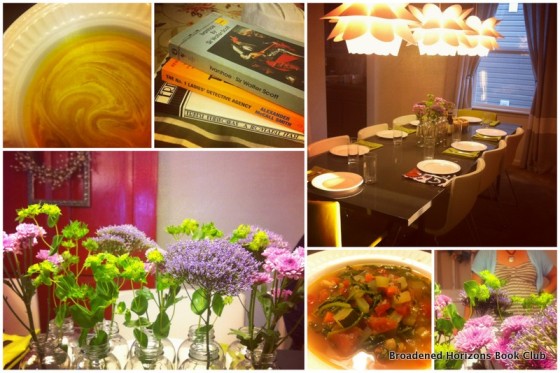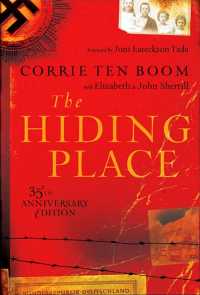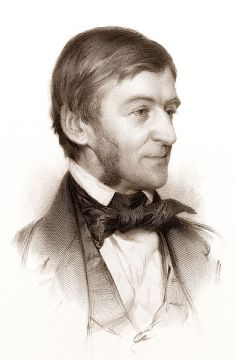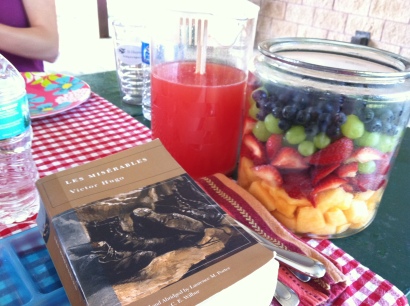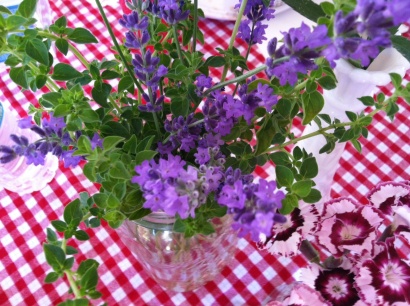We had a great meeting last Thursday discussing The No. 1 Ladies Detective Agency. Everyone gave the book a thumbs up and would recommend it if you haven’t already had the pleasure of reading it. I’m not a big fan of mystery and crime books, but this was light and entertaining. I just got an email from the library today saying book two in this series that I’ve reserved is in. I recommend having the second book in the series handy for when you finish reading book one.
November 8th at 7:00pm we’ll gather again for A Moveable Feast by Ernest Hemingway at Paradise Bakery & Cafe. Happy Reading!! See you next month!
An Ivanhoe Dinner Party
We had a wonderful dinner and evening full of fellowship and conversation at our Ivanhoe meeting. Not all of us were able to finish the book before the meeting but I think by the time we left we were all excited to finish reading it or watch the new Ivanhoe movie due in theaters next year!!
This week we’ll be meeting on Thursday at Paradise Bakery for the discussion of The No 1 Ladies Detective Agency. This was a quick read for me a few weekends ago while we were on a mini-vacation. I was kicking myself for reading it so fast without having the next book of the series with me! I’m first on the waiting list for book two from the library. Can’t wait to read more of the story!
On my personal blog sarahronk.com I’ll be blogging this month about how our book club works in a series called Reading Is Social. If you’re new here or curious to know more of the behind-the-scene details I hope you’ll check it out!
Recap of The Hiding Place/ Intro to Ivanhoe!
We had a great discussion a few weeks ago on The Hiding Place by Corrie ten Boom. Who doesn’t love her name, by the way? This book is the story of her life- particularly during World War II- and is a must read for pretty much everybody. We all got a little stuck on Betsie, her sister, and how inspiring she was with her heart full of love especially for her captors and her ability to give thanks in ALL circumstances. While I reminded everyone that we should also look to Corrie’s example of courage and willingness to serve and Nollie’s commitment to obeying the Word of God, I still can’t stop reminding myself to be thankful even for fleas. Thanks again, Sheila, for hosting!
Next Up! Ivanhoe
Set in the 12th century, this is the oldest time period by far that we’ve read as a book club. The good news is that it was written in the 19th century so it should look like English to all of us 🙂 Ivanhoe is, sadly, not about ice cream, but there are knights and swineherds and melee. So says all the highlighted blue words on the Wikipedia page. Most importantly there’s also Robin Hood. I have no idea where he fits into the story, but I’ve always liked him. I blame Disney. Also, this is one of my favorite songs. I plan on getting my read on very soon, and then you can check the facebook page for other random videos and thoughts on things that probably have nothing to do with this story.
The best reason to read this book, though, is that it’s dinner party month!!!! You don’t want to miss out. So grab your copy and join us!
Having Faith When Everything Has Changed
That was all. Nothing had changed. Mrs. Heemstra continued with her recipe for stretching the tea ration with rose leaves. And yet everything was changed. For in that instant, reality broke through the numbness that had grown in me since the invasion. At any minute, there might be a rap on this door. These children, this mother and father, might be ordered to the back of a truck.
Dr. Heemstra came back to the living room and the conversation rambled on. But under the words, a prayer was forming in my heart.
Lord Jesus, I offer myself for Your people. In any way. Any place. Any time.
– The Hiding Place, Corrie ten Boom
This passage from The Hiding Place marks a major turning point in Corrie ten Boom’s life–when nothing on the surface seems to have changed, but everything has. Shortly after she utters this prayer, Corrie becomes involved with the Dutch Resistance to the German occupation of Holland during World War II. The Hiding Place tells us a bit about Corrie’s early life but mainly focuses on her experiences during World War II. These events would go on to profoundly shape the rest of her life, in which she was known for being a prolific writer, speaker and evangelist and a model of what it looks like to practice true forgiveness.
I read The Hiding Place for the first time years ago, and one thing that I remember being struck by that first time, as well as now, is the significant role that her Christian faith played in her life and the lives of all of her family members. As you read the novel (or if you’ve finished all ready), consider all of the ways that faith in Christ influences people’s actions, decisions and responses to adversity. I think you will be impressed, too!
To get you ready for our discussion of The Hiding Place, here are some discussion questions, courtesy of the LitLovers website.
- Corrie’s father tells her that he pities the Nazi’s: “They have touched the apple of God’s eye.” What does he mean by that statement. Consider the strength of character it takes to feel pity for a people and a system that means to do harm to fellow beings.
- What are the various hiding places, real and symbolic, to which the title of this book refers? How, for instance, do fleas help lead to a “hiding place” for Corrie and Betsie while they are imprisoned?
- In addition to the extraordinary kindess and courage of the ten Boom family, what are some of the smaller acts of kindness shown by others in this memoir? Are people inspired to greater compassion, or less, in dire situations? What motivates acts of kindness—in other words, what makes people kind? What makes some people kinder than others?
- Talk about the kind of woman Corrire ten Boom and her sister Betsie were. What sustained them during their ordeal in the concentration camps? To what do you attribute Corrie’s courage and survival in the face of so much death and hardship?
- Stories like Corrie’s always beg comparison to ourselves and our own lives. We wonder how each of us would behave under similar horrific circumstances? How would you? What inner strengths and courage and compassion would you draw on? Would you have risked your life and the lives of your family (especially, if you have children) to help the Jews or any others subjected to brutal persecution? We know what we are called upon to do, but would many of us find the courage needed to do what is right?
- Comment on what Betsie said to Corrie: “I pray every day that we be allowed to do this! To show [the Nazis] that love is greater!” What do you find extraordinary in that statement?
- Talk about the incident after the war in which Corrie comes across one of the former SS men at Ravensbruck. How did she respond to him at first…and how did she change? What does this say about the principle of forgiveness—its difficulty and its healing power?
- What do you find most surprising…or inspiring in this account of the Nazi era? Did this book change you in any way? Did you come away having learned something…about history…about faith…or about yourself?
I hope you’re enjoying The Hiding Place, and we’re looking forward to seeing everyone for our discussion on Thursday, August 9 at Sheila’s house. The address is in the E-vite. If you didn’t receive it or if you need directions, please comment on this post, on our Facebook page, or get in touch with one of us personally, and we’ll be sure to help you get there.
Happy reading!
Introducing The Hiding Place
August Book: The Hiding Place
By: Corrie Ten Boom
Time: 7:00pm
Location: Shelila’s House (address on Evite)
Have you started The Hiding Place, by Corrie Ten Boom? I just finished it for a second time and I am still in love! This true story is about Corrie and her family and how their lives transpired while living through World War Two. The story can seem a bit depressing yet very moving, one which keeps you turning the pages. I could go on and on about how much I love this favorite book of mine but will leave you with these descriptive words about the book.
Fascinating Powerful Novel Spiritual Message Pleasant Domestic Life in Holland A Secret Room Amazing Faith False Paper Ration Cards A Hidden Bible Concentration Camps Dutch Resistance Miraculous Surivial Moving Story Suffering Triumph Joy
Ps. 119:114 You are my refuge and my shield; your word is my source of hope.
Guest Post By Rachel
I can’t believe they kicked us out!
Well, actually, I can. We stayed about an hour after they closed! It turns out that our new “Panaradise” closes at 8pm not 9pm. Whoops.
Before you get bored with my yammering and stop reading, what you need to know is that next month we will be meeting at Shelia’s house! Her address will be in the e-vite.
Confession: I totally forgot to take photos. #photographerfail
Instead, here are some of my favorite quotes from Nature:
“When we speak of nature in this manner, we have a distinct but most poetical sense in the mind. We mean the integrity of impression made by manifold natural objects. It is this which distinguishes the stick of timber of the wood-cutter, from the tree of the poet. The charming landscape which I saw this morning, is indubitably made up of some twenty or thirty farms. Miller owns this field, Locke that, and Manning the woodland beyond. But none of them owns the landscape. There is a property in the horizon which no man has but he whose eye can integrate all the parts, that is, the poet.” (emphasis mine. i read on my phone and have no page numbers, but it’s an essay for crying out loud. find the page yourself. :D)
“Nature, in its ministry to man, is not only the material, but is also the process and the result. All the parts incessantly work into each other’s hands for the profit of man. The wind sows the seed; the sun evaporates the sea; the wind blows the vapor to the field; the ice, on the other side of the planet, condenses rain on this; the rain feeds the plant; the plant feeds the animal; and thus the endless circulations of the divine charity nourish man.” (again, emphasis mine. he had a habit of using lots of illustrations and then wowing me with a really poetic point at the end of the paragraph. i felt like this read a lot like poetry, actually.)
“Willingly does she follow his steps with the rose and the violet, and bend her lines of grandeur and grace to the decoration of her darling child.” (i have no recollection of what he was talking about, but the visual is stunning.)
“good thoughts are no better than good dreams, unless they be executed!” (amen.)
“What noble emotions dilate the mortal as he enters into the counsels of the creation, and feels by knowledge the privilege to BE!” (here. here.)
“Nature is made to conspire with spirit to emancipate us. Certain mechanical changes, a small alteration in our local position apprizes us of a dualism. We are strangely affected by seeing the shore from a moving ship, from a balloon, or through the tints of an unusual sky. The least change in our point of view, gives the whole world a pictorial air. A man who seldom rides, needs only to get into a coach and traverse his own town, to turn the street into a puppet-show. The men, the women, – talking, running, bartering, fighting, – the earnest mechanic, the lounger, the beggar, the boys, the dogs, are unrealized at once, or, at least, wholly detached from all relation to the observer, and seen as apparent, not substantial beings. What new thoughts are suggested by seeing a face of country quite familiar, in the rapid movement of the rail-road car! Nay, the most wonted objects, (make a very slight change in the point of vision,) please us most. In a camera obscura, the butcher’s cart , and the figure of one of our own family amuse us. So a portrait of a well-known face gratifies us. Turn the eyes upside down, by looking at the landscape through your legs, and how agreeable is the picture, though you have seen it any time these twenty years!” (great photography advice. 10 points if you know what a camera obscura is without having to look it up :D)
“The true philosopher and the true poet are one, and a beauty, which is truth, and a truth, which is beauty, is the aim of both.” (i think this is actually the origin of the phrase, “beauty is truth, truth is beauty.” agree? disagree?)
“I have no hostility to nature, but a child’s love to it. I expand and live in the warm day like corn and melons.” (fantastic. my favorite quote. hilarious, too.)
“As a plant upon the earth, so a man rests upon the bosom of God; his is nourished by unfailing fountains, and draws, at his need, inexhaustible power. Who can set bounds to the possibilities of man? Once inhale the upper air, being admitted to behold the absolute natures of justice and truth, and we learn that man has access to the entire mind of the Creator, is himself the creator in the finite.” (basically he’s yammering on about nature poetically. i love it. if you don’t like nature or poetry, this might not be the essay for you.)
Walking by Thoreau:
I found so much truth and hilarity in this essay. Yes, it does just sound like an old man yammering on about how much he loves to take walks. BUT I LOVE TAKING WALKS. If you like walking or even the idea of walking, you might like this essay. I sort of went overboard on Emerson quotes, so I’ll spare you here.
Both essays are in the public domain I believe, so there’s no reason not to track them down if you’re intrigued!
Next month is a DEFINITELY going to be a winner. It’s The Hiding Place by Corrie Ten Boom. A memoir. Rachel says it’s her all-time favorite book. But you don’t have to take our word for it. (butterfly in the sky… i can go twice as high. you’re welcome.)
For Pondering as You’re “Walking” through “Nature”…
I hope everyone is ready for this Thursday as we discuss “Nature” by Ralph Waldo Emerson and “Walking” by Henry David Thoreau. I’ve put together a few questions to ponder as you “saunter” through these essays so you’re ready to discuss.
Here are a few questions about “Nature” that I found here:
- In Emerson’s view, how do adults and children view nature differently?
- How do changing seasons affect nature lovers?
- What does Emerson mean when he states, “Nature always wears the colors of the spirit”? Do you agree with him; why or why not?
- What, do you think, is the difference between the meaning Emerson finds in nature and the meaning a scientist finds?
Here are a few questions about “Walking” that I fond here:
- What does Thoreau mean by the “art of Walking” and “sauntering”?
- Thoreau writes: “But possibly the day will come when it will be partitioned off into so-called pleasure grounds, in which a few will take a narrow and exclusive pleasure only,—when fences shall be multiplied, and man traps and other engines invented to confine men to the public road; and walking over the surface of God’s earth, shall be construed to mean trespassing on some gentleman’s grounds. To enjoy a thing exclusively is commonly to exclude yourself from the true enjoyment of it. Let us improve our opportunities then before the evil days come.”
Are we living in the “evil days” that Thoreau predicted would come? Why or why not? - Thoreau writes: “Yes; though you may think me perverse, if it were proposed to me to dwell in the neighborhood of the most beautiful garden that ever human art contrived, or else of a dismal swamp, I should certainly decide for the swamp. How vain then have been all your labors, citizens, for me!”
What choice would you make and why? - How would you describe Henry David Thoreau based upon this essay?
And here are a few that I thought of myself:
- Do you enjoy going out for walks? Where is your favorite place to walk and why? Do you prefer walking in an urban environment or out in nature?
- The authors of these essays become very philosophical when contemplating nature. Have you ever been out in nature and found your mind wandering in a similar way? What did you think about? For example, when I am out weeding my flower beds, I find myself contemplating sin and holiness. What say you all?
- Were these essays anything like you expected?
- Overall, what do you think of these Transcendentalists and their writings? Do you enjoy their style? Would you read other works by them or read these again?
As I mentioned above, our next meeting is this Thursday, July 12. We’ll be meeting at 7 pm at the Paradise Bakery and Café at Castleton Mall (please note the location change).
Happy reading (and happy sauntering) to you all!
Emerson & Thoreau
Henry David Thoreau
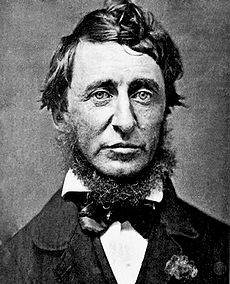
Here are some fun (and completely random) facts ::
He was born David Henry Thoreau. After college he changed his name to Henry David, but from the reading I’ve done it looks like he never made that change legal.
The house he was born in Wheeler-Minot Farmhouse still stands today, but 100 yards from where it was originally. Moving houses fascinates me. Really, moving. a. building. It’s crazy!
His father was a pencil maker.
His grandfather Asa Dunbar let the first student protest in the US at Harvard University in 1766… over butter of all things. But, personally as a huge fan of butter, I can understand being upset about being served rancid butter. (the Butter Rebellion)
He attended Harvard between 1833 and 1837 but unlike his grandfather he did not take part in a butter rebellion. He did refuse to pay $5 for a (strange, honorary, in my opinion) Masters diploma Harvard would give graduates three years after graduating if they could prove they were alive and had $5 to pay the University.
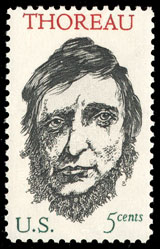 Pertaining to his appearances, he wore a neck-beard for several years and claimed women liked that. (!!) It sounds like Lousa May Alcott might have set him straight on that disillusion.
Pertaining to his appearances, he wore a neck-beard for several years and claimed women liked that. (!!) It sounds like Lousa May Alcott might have set him straight on that disillusion.
He took a leave of absence from school in 1735 from school and took a teaching job, that he quickly left so he wouldn’t have to administer corporal punishment. He and his brother John, a few years later opened a Grammer School where they instituted some new concepts like nature walks (which I’m totally on board with) as well as field trips to local stores and businesses.
After graduating he met Emerson, our other author this month. Emerson was older than Thoreau and took him under his wing. Emerson encouraged Thoreau to write for The Dial, a quarterly periodical. (Nathaniel Hawthorne also wrote for The Dial) He even lived with Emerson from 1841–1844 and was his children’s tutor, assistant editor and gardener.
Much more can be read about his life on wikipedia.
Ralph Waldo Emerson
His formal education began when he was nine. (Wonder what would be different in our society if kids stayed home until they were nine now?)
I think he had the earliest form of GoodReads when he began keeping a list of all the books he read in a series of journals he called “Wide World”
His graduating class at Harvard was only 59 students and he was somewhere in the middle.
In 1826, due to poor health he started traveling south to find a better climate, finally ending in St. Augustine, Florida.
He was very good friends with the nephew of Napoleon Bonaparte, Murat.
He was part of the Transcendental Club as was Thoreau, both writing for its journal previously mentioned, The Dial. It’s reported it was the “most original and thoughtful periodical ever published in this country”. -wow!
More on Emerson here.
I could keep going but there’s just a little to give you a taste of some fun random facts from these guys. Have you read any other works by Emerson or Thoreau? Anything since back in high school when it was required? If I’ve read them before it was in school, and I’ve long since forgotten what works of theirs I’ve read. Hope you’re making great progress on our essays this month and we’ll see you next Thursday! **Remember we are now meeting at the other Paradise! If you didn’t get the evite email me (sarahronk{at}gmail{dot}com) or leave a comment or facebook msg.
Happy Reading!
Next Up: Emerson & Thoreau
We’re taking it easy this month (because we know you’re busy running through the sprinkler and attending barbecues) so we’re reading two essays. Weird right? Who reads essays besides teachers? Well, we do. It fits our goals to read things we wouldn’t normally and challenge our minds.
blah, blah, blah-what you really want to know: so far I think “Waking” by Thoreau is hilarious. I don’t know if he meant it that way, but I’m going to pretend he did. He romanticizes and gets “all poetic” about taking a walk. I dig it.
I think both essays might be a challenge for our entertained minds to focus on and sort out their complex, philosophical language. So, read them outside in the sun without too many distractions. This is a great month to challenge yourself if this kind of reading is hard because they’re quite short. Also, they’re free (in the public domain). So read up and join us! July 12 7pm location TBA.
A Book Picnic
Our June book club meeting took us back to Geist Park, where our book club began several years ago, for a picnic and our discussion of Les Misérables. After I had posted a few pictures from our June meeting to Facebook, one of my co-workers told me he would join our book club, but he was solely interested in the food. I can’t say that I blame him. The food was delicious.
The décor was perfect for a summer picnic…
And Sarah’s mason jar cheesecakes were a huge hit…
Quite a few of us attempted Les Misérables, some of us watched a film adaptation instead, and a few of us finished. One thing we realized is that all abridgements (and film adaptations, for that matter) are not created equal. The Barnes & Noble classic edition abridged by Laurence M. Porter that a couple of us had seemed to be the best at cutting out some of the lengthy passages that didn’t really contribute to the story (including about 15 chapters about the Battle of Waterloo). However, a couple of us had abridged editions that cut out so much, the story didn’t really make sense anymore. We spent a lot of the time filling in the gaps and recounting the story, talking about the characters of Jean Valjean, Fantine, Marius and Cosette as we went along. I think we all are looking forward to seeing how the new film adaptation of the musical that will be coming out in December will treat the story and how it will compare to the novel.
For July, we’re taking it a little easier and will be reading the (much shorter) essays “Nature” by Ralph Waldo Emerson and “Walking” by Henry David Thoreau. Hopefully the summer weather and warm sunshine will give you some inspiration to read these classics by two of the most famous naturalist authors. We will see you July 12 at 7 p.m. We will keep you posted on the location for this month, so watch for that information coming soon.
Happy reading!

